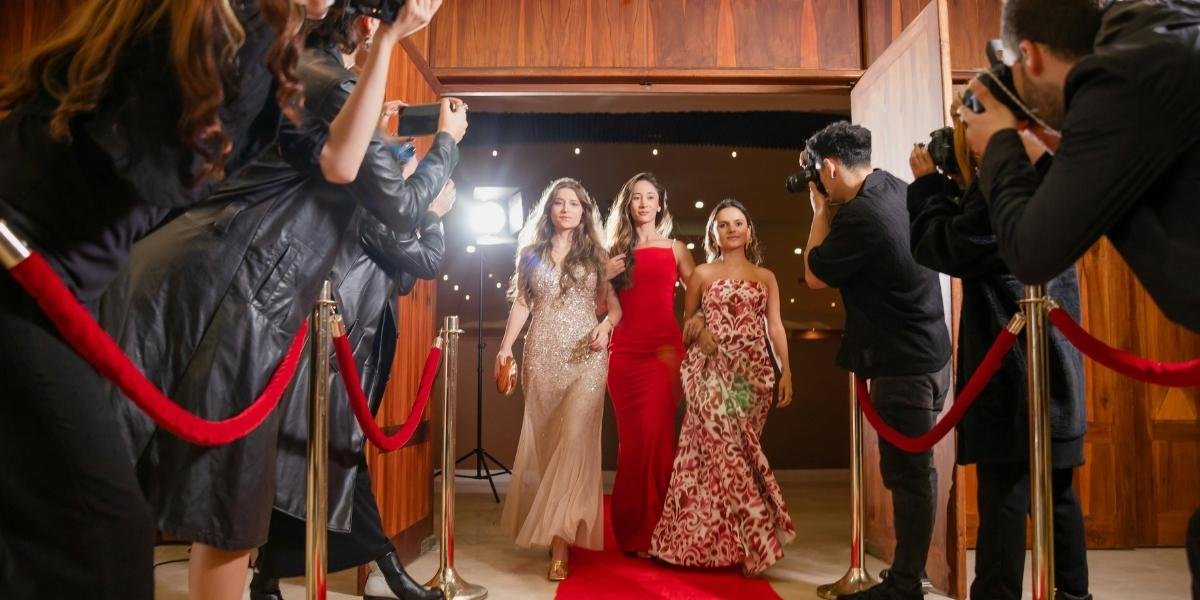In a culture where fame can open nearly every door, some public figures have walked through into worlds far removed from their origins. Athletes become business leaders. Musicians become fashion moguls. And more recently, actors and entertainers have stepped into political arenas. This merging of celebrity, entrepreneurship, and public service is no longer an outlier—it’s a familiar pathway. The phenomenon reveals much about modern influence and raises questions about credibility, intention, and public expectation.
Why Do Celebrities Transition Into Political Leadership?
The shift from entertainment to politics often begins with a platform—not necessarily a policy. A well-known figure garners attention through television, music, or film. Over time, that visibility brings not just fans, but followers. These public figures become more than entertainers—they become trusted voices in times of cultural division or national debate.
Some celebrities enter office because they believe they can create change on a larger scale. Others are driven by a sense of civic duty, frustration with existing leadership, or the influence of personal mentors already involved in governance. Their campaigns often leverage their recognition, media familiarity, and polished communication skills.
Yet name recognition alone does not build a sustainable political career. Once elected, these figures must transition quickly from performative presence to policy execution. Some manage that leap successfully. Others falter when public appeal is no longer enough to lead a constituency.
How Do Entrepreneurial Ventures Fit Into the Equation?
For many public figures, brand-building begins early. Long before running for office, they may already be known for launching clothing lines, investing in tech startups, or creating signature products. These ventures often grow alongside their entertainment careers, offering a dual image: the artist and the strategist.
The shift into entrepreneurship is not always driven by financial ambition. It can stem from personal passion, opportunity, or a desire for independence from traditional industry models. Business ventures allow celebrities to express themselves in new ways while controlling how their image is monetized and perceived.
When these same figures transition into politics, their business background can be viewed both as a strength and a liability. Supporters see experience in leadership, negotiation, and economics. Critics may question conflicts of interest, priorities, or lack of public service history.
Can Fame Translate Into Political Credibility?
Public perception plays a central role. A celebrity entering politics often benefits from built-in trust. Fans may feel they “know” the person from years of interviews, performances, or reality appearances. This parasocial connection can foster loyalty that traditional candidates struggle to build.
However, credibility in government requires more than a compelling persona. It demands knowledge of legislative processes, negotiation with adversaries, and long-term policy thinking. Fame can help secure votes, but sustained impact comes from preparation and principle.
Critics argue that turning celebrity into leadership reduces serious civic responsibilities to popularity contests. Others maintain that lived experience, public service, and character matter more than career background. The balance between influence and effectiveness becomes the central tension in these transitions.
Do Business Interests Impact Governance?
When an elected official maintains significant business holdings, questions naturally arise. Can one truly serve the public while managing private enterprise? This debate grows louder when decisions in office could benefit personal ventures.
Some celebrity-turned-leaders address this by placing businesses in blind trusts or stepping away from day-to-day operations. Others maintain involvement, sparking public scrutiny. The concern isn’t just about ethics—it’s about perceived fairness and priorities.
Supporters may argue that business acumen can improve economic development, budgeting, or administrative efficiency. Critics focus on transparency, decision-making integrity, and the potential for blurred lines between public good and private gain.
What Motivates These Career Shifts?
Not all crossovers follow the same pattern. Some figures move from music to fashion, then into activism. Others use their fame to advocate for social causes, which slowly evolves into formal political participation. Motivation can range from legacy-building to community impact to simple curiosity about what influence can achieve.
The one common thread is control. Public figures who step into new sectors often do so to shape their narrative, take ownership of their brand, and extend their relevance. Whether launching a product line or running for office, the goal is rarely short-term. These are long plays for power, purpose, or permanence.
Are These Transitions Sustainable?
Longevity depends on more than fame. It hinges on adaptability, integrity, and the ability to build competent teams. A celebrity can hire the best policy advisors, strategists, or financial planners—but leadership requires more than delegation.
Those who succeed in both business and politics often share certain traits: strong instincts, resilience under pressure, and a willingness to listen. Their survival depends not just on the strength of their ideas, but on how effectively they execute them and respond to public need.
Media fatigue is another challenge. Overexposure can erode public support, especially if audiences sense that the figure is more concerned with image than impact. Authenticity—real or perceived—remains a deciding factor.
What Does This Trend Say About Culture Today?
The merging of celebrity, commerce, and civic life reflects broader cultural shifts. In a digital era dominated by visibility, the idea of a singular professional identity has faded. People no longer ask, “What do you do?” but “What else do you do?”
Influence now crosses boundaries with ease. A singer can shape policy through activism. An actor can spark nationwide debate with a tweet. The tools of reach and branding are no longer limited to product marketing—they’re applied to ideologies, platforms, and governance.
This convergence also reflects public desire for relatability. Many voters and consumers are drawn to figures who seem familiar, flawed, and human. In a world of scripted speeches and polished marketing, fame offers a kind of unscripted familiarity—even if it’s manufactured through years of practice.
Read Also: Building a Better Future: Dr. Sarah Sun Liew’s Vision for American Justice and Economic Growth
How Should Audiences Respond to These Crossovers?
Caution and curiosity go hand in hand. Just as consumers examine a new product for quality, voters and supporters should examine intent, preparation, and track record. Fame can be a tool for change, but it can also distract from the responsibilities of leadership and long-term accountability.
Support should not rest on name recognition alone. It must come from thoughtful evaluation of experience, values, and the ability to govern or manage effectively. As audiences, consumers, and citizens, people have the right—and responsibility—to ask more of those who seek their trust.








